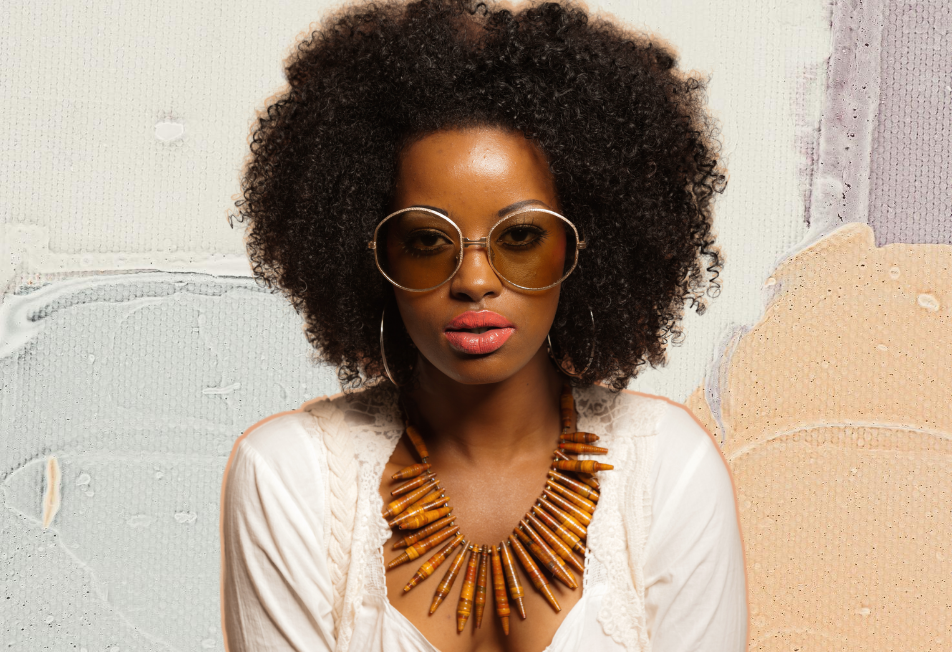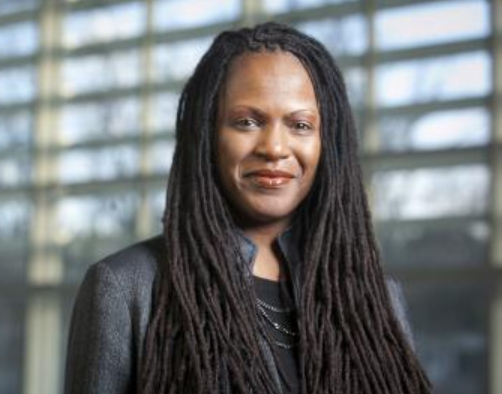Research suggests there is natural hair bias in the hiring process
The findings signal a need to make discrimination against natural hair laws more widespread.

Last summer, California became the first U.S. state to ban discrimination against natural hair. The act was officially signed into law on July 3, 2019, and went into effect on January 1, 2020.
Called the CROWN Act (Create a Respectful and Open World for Natural Hair), the law makes the denial of employment and educational opportunities due to hair texture or protective hairstyles — including braids, locs, twists or Bantu knots — illegal.
So far, it has only been passed in seven U.S. states. Now, a new study is shining a spotlight on natural hair discrimination in the job hiring process, signaling an urgent need to make the act more widespread.
New research from Duke University has emerged suggesting Black women with natural hairstyles are sometimes perceived as “less professional” and are less likely to get job interviews.
The findings, published in the journal Social Psychological and Personality Science, “offer empirical evidence that societal bias against natural Black hairstyles infiltrates the workplace and perpetuates race discrimination,” Ashleigh Shelby Rosette, a management professor and a senior associate dean who conducted the research at Duke University’s Fuqua School of Business, says in a statement.
“For Black women, [hairstyle] is a serious consideration and may contribute to the lack of representation for Blacks in some organizational settings,” Rosette says.
“In the aftermath of the George Floyd murder and the corresponding protests, many organizations have rightly focused on tactics to help eradicate racism at systemic and structural levels. But our individually held biases often precede the type of racist practices that become embedded and normalized within organizations.”

For the study, Rosette’s team recruited participants from different races and asked them to pretend they were job recruiters screening candidates.
Participants were asked to rate the profiles of fictional Black and white female candidates for several factors, including professionalism and competence.
Black women with natural hair received lower scores on both points and were not as frequently recommended for interviews when compared with Black women with straightened hair and white women with curly or straight hair.
“In many Western societies, whites have historically been the dominant social group and, as a result, the standard for professional appearance is often based on the physical appearance of whites. For women’s hair, that benchmark is having straightened hair,” said Rosette.
“When a Black woman chooses to straighten her hair, it should be a personal preference, not a burden to conform to a set of criteria for which there could be adverse consequences.”

Researchers found the fictional job candidates with natural hair were subject to more discrimination in fields with conservative dress norms.
Hair texture didn’t appear to impact job prospects in advertising. The authors believe this may be because advertising is viewed as a more creative field.
The study took a random sampling of participants — not trained job recruiters, so it’s hard to say if the findings would be remain consistent in a real-life, professional setting.
Still, the results signify the presence of natural hair bias at the systemic level.

SIGN UP FOR OUR NEWSLETTER AND GET OUR HEADLINES DELIVERED RIGHT TO YOUR INBOX.
Hair-based discrimination has been an issue for decades but it re-emerged in December 2018 when a New Jersey school district ordered a black high school wrestler to cut off his dreadlocks or forfeit a match.
Then, in 2019, DeAndre Arnold was suspended from his Texas high school and told he may be banned from graduation if he kept his dreadlocks, which he has been growing since seventh grade.
These and many other stories inspired the CROWN Act, which was first signed into law by California Gov. Gavin Newsom.
“Although there have been some policy changes protecting Black people from discrimination based on their natural hair, these changes are fairly recent and not as widely implemented as they should be,” Rosette said.
“This work illustrates that racial discrimination based on hair can occur, and we hope it can inform new policies and practices for firms to ensure they’re considering candidates equally, and furthermore, aren’t missing out on top talent.”

LIKE WHAT YOU JUST READ? CLICK HERE TO SUPPORT WE REP STEM. YOUR FUNDS WILL BE USED TO RECRUIT AND COMPENSATE TALENT AND TO CREATE RAD NEW CONTENT.
